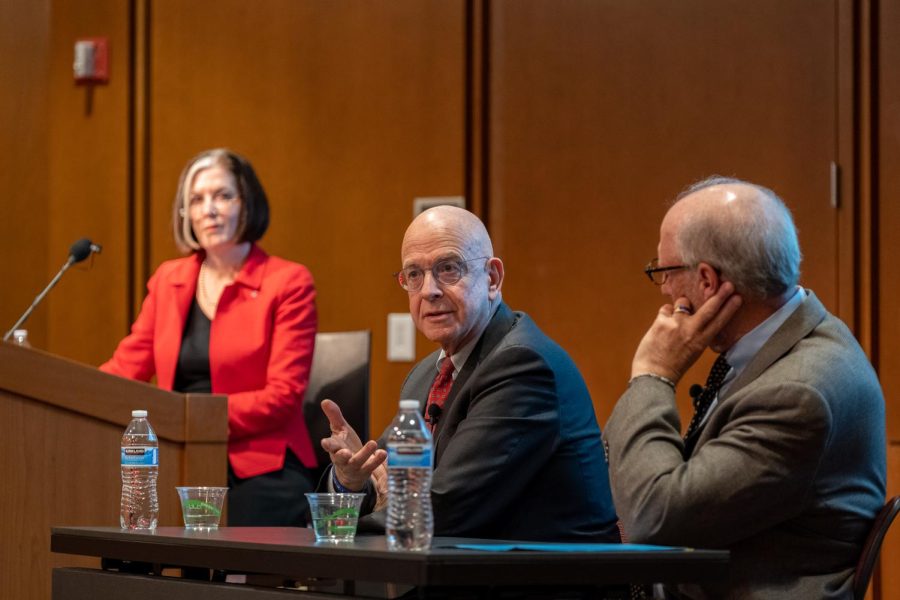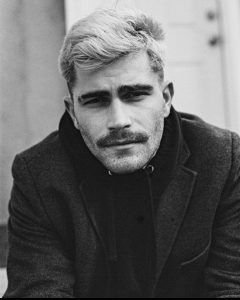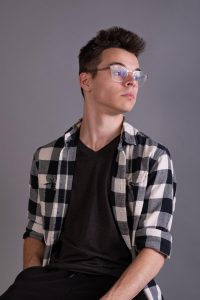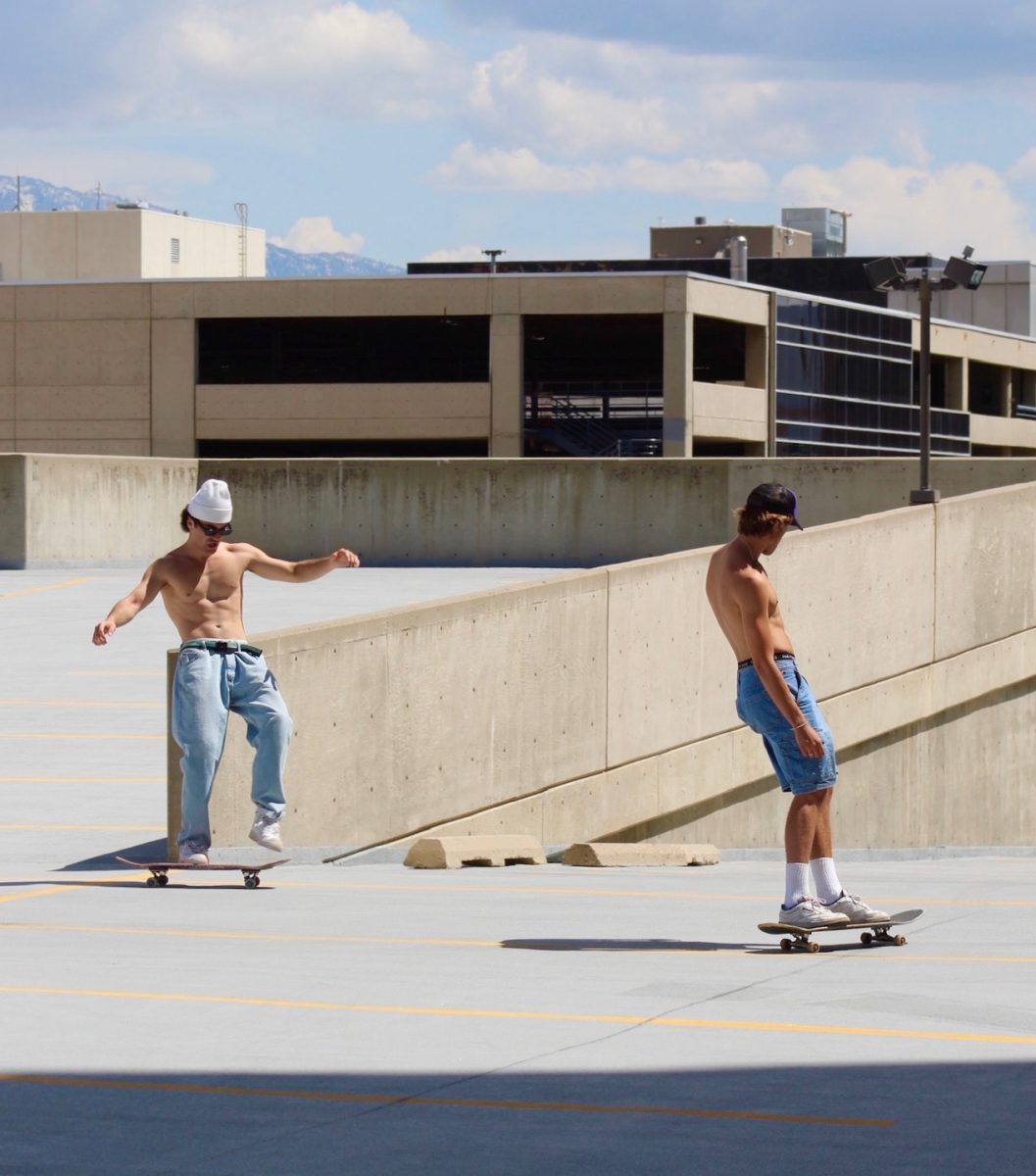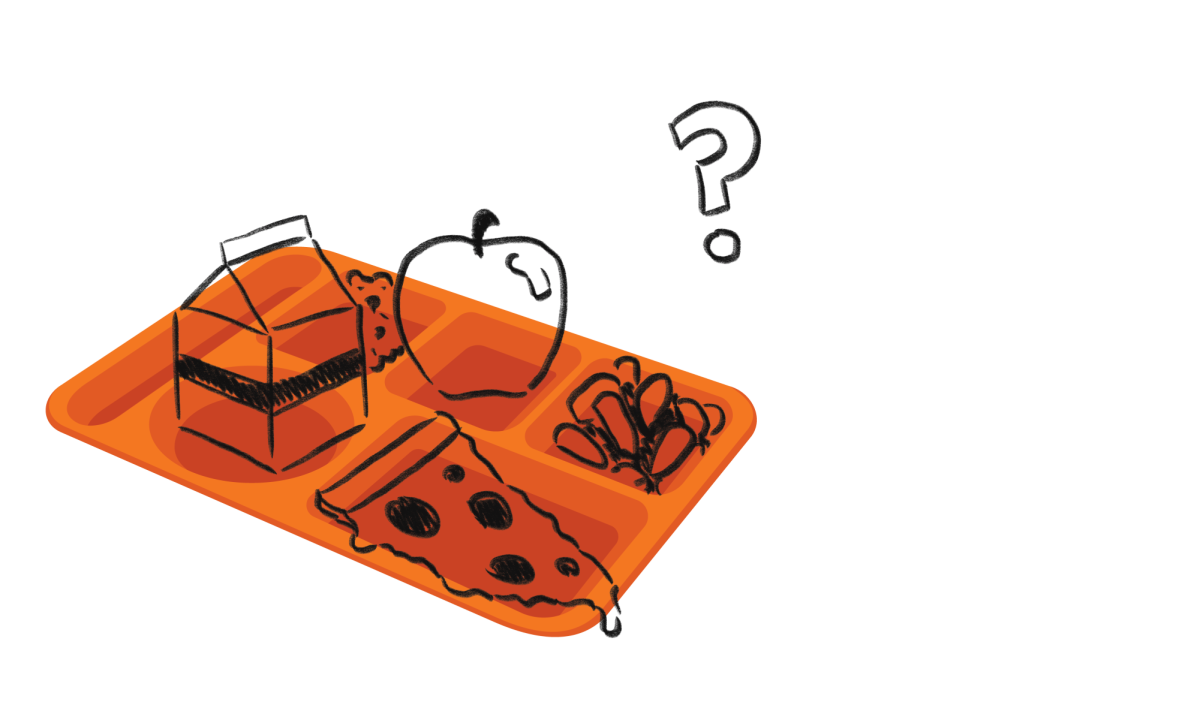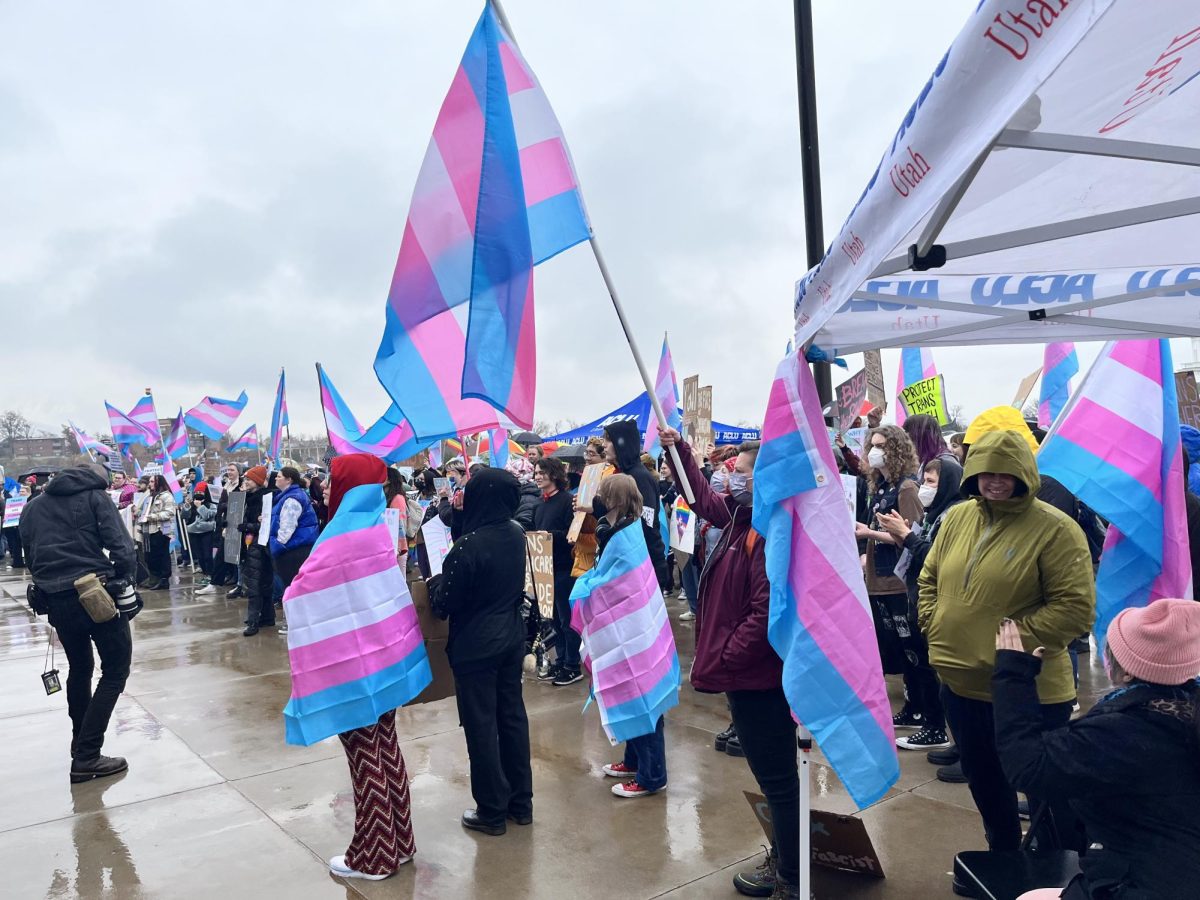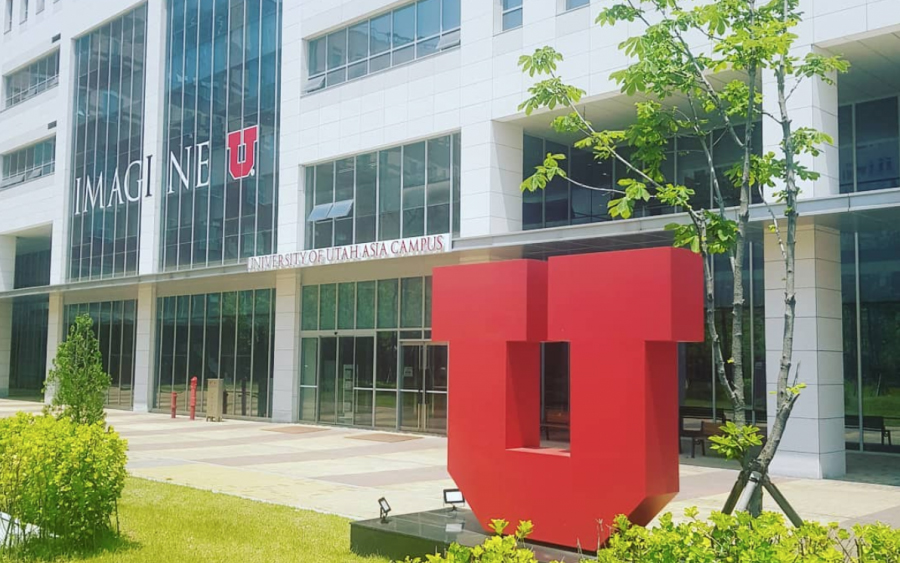U Discussion Reflects on Holocaust, Combatting Growing Anti-Semitism
Amos Guiora (middle) speaking alongside Hollis Robbins (left) and Bob Goldberg (right) during the Holocaust Memorial Day discussion panel at the Gould Auditorium in Salt Lake City on Tuesday, April 18, 2023. (Photo by Marco Lozzi | The Daily Utah Chronicle)
April 20, 2023
“Look how many police officers are outside, the mere fact that there are so many police officers here tells you everything you need to know,” said Amos Guiora, a professor at the University of Utah’s S.J. Quinney College of Law.
”You’re absolutely right,” responded former professor of history at the U, Bob Goldberg. “Jews feel like strangers in their own land.”
Guiora and Goldberg were panelists at the U’s discussion on Tuesday called “Reflecting on Germany’s War Against the Jews from an American Perspective,” moderated by Hollis Robbins, dean of the college of humanities. The event focused on increased antisemitism and Holocaust denial in the U.S. along with the exploration of complicity in the face of genocide. Antisemitic incidents increased by 36% in 2022, the highest level recorded since the Anti-Defamation League began collecting data in 1979.
Guiora, the son of Hungarian Holocaust survivors, said he has dedicated his life to researching institutional complicity in law and believes it was a crucial element in executing the Holocaust and the prolonging of antisemitism and racism across the world.
“In the United States at the moment, [there is] a terrible undertaking of Holocaust denial,” he said. “One of the greatest contributions in a conference like today is to be very clear that the Holocaust did happen.”
Goldberg, dedicating his career to education believes it is crucial at incorporating Holocaust education into schools. “We believe that education is the key way to fight against discrimination and prejudice, this is an education issue for us,” Goldberg said.
According to the Associated Press, nearly 90% of U.S. Jews feel that antisemitism is a serious problem, compared to 73% in 2016.
Asher Ireland, a second-year student studying geography at the U and president of the student board at Hillel for Utah said that antisemitism is seen across the political spectrum.
“There’s that white supremacist antisemitism that comes more from the right-wing, and then the left-wing stuff that comes from the intersection of anti-Zionism and antisemitism,” Ireland said.
The Anti-Defamation League defines anti-Zionism as “a prejudice against the Jewish movement for self-determination and the right of the Jewish people to a homeland in the State of Israel.”
Ireland made a clear distinction between criticizing the Israeli government as valid and the denial of self-determination for Jewish people as antisemitic, citing the University of Vermont’s recently resolved allegations of antisemitism after denying Jewish students access to student clubs if they didn’t denounce the state of Israel.
During the panel discussion, which began with a summation of the events that began the onset of the Holocaust, Goldberg regarded Franklin D. Roosevelt’s presidential administration as complacent to Jewish persecution during World War II. Goldberg cited his article “The Bystander During the Holocaust” and its multiple examples of international complacency and how the world must not repeat the mistake of ignoring persecution.
“I am of the firm belief that without the bystander and the enabler, the Holocaust never happens,” said Guiora, who wrote a book recounting his parents’ experience titled “The Crime of Complicity: the Bystander in the Holocaust.”
Guiora then referenced his experience traveling to Eastern Hungary and standing on a train platform that was used to collect and send Jews to concentration camps.
“If you really want to understand the Holocaust and the bystander and the perpetrator, it’s on the platform,” Guiora said.
As the conversation continued, Goldberg addressed antisemitic conspiracies affiliated with philanthropist George Soros.
“Soros has been blamed for financing Latin American caravans crossing the border, paying for protests in the wake of George Floyd and has also been accused of owning the lab in Wuhan where the virus [COVID-19] allegedly escaped,” Goldberg said. According to Reuters and The New York Times, the accusations of Soros are all falsifiable and often politically motivated.
Ireland said he thinks a key part of many forms of hatred is looking at someone as inferior.
“You also have this narrative that Jews control the news, the media, the weather, the World Bank, so that is punching up, it’s on the left, right, up and down so it attracts the entirety of the fringe,” Ireland said.
At the event, Executive Director of Hillel for Utah Dana Tumpowsky praised the work of CEO of the New England Patriots Robert Kraft and his Stand Up to Jewish Hate campaign. The campaign encourages people to share a blue square hashtag that represents the 55% of all religious hate crimes directed toward Jews in the U.S.
Goldberg cited in the discussion that the majority of young people, apart from the millennial generation and Generation Z in the U.S., do not know what Auschwitz is and the true death toll of the Holocaust.
“It’s really important that we remember the Holocaust, we say never again will something like this happen,” Ireland said. “We’re the last generation of having survivors be able to come and talk to us.”
Guiora is a member of the second generation of Jewish people that have outlasted the Holocaust. He said one of his greatest fears is what will happen to future generations who do not have a direct relationship with Holocaust survivors.
“My grandchildren will not know a survivor and that raises really significant questions about how to educate what is called the fourth generation,” Guiora said.
As the event concluded, Guiora added that Holocaust survivors are a “dying breed” and that without them there might be less willingness to remember the Holocaust.
“If we’re going to have these discussions, they’re brutal, they’re awful, but there ain’t no plan b.” Guiora said.
Goldberg added that the Holocaust was an event that is deeply seated in history and the lessons from it can only be survived by a younger generation with an authentic education of the event.
“I look to this generation as the hope,” he said. “It’s not just about Jews, it’s about every other group that has [also] been persecuted in our society and the world.”


